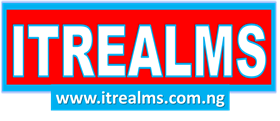By Remmy Nweke
CONSISTENCY with its plan to shape the future of mobile and broadband internet communications via technology leadership, Ericsson has introduced a new product known as ‘managed model’ for the Nigerian market.
According to Ericsson, the new model of operations when adopted could lead to cost savings of up to 20 per cent in the capital expenditure.
The overall benefit is to bring down the cost of operating in developing countries especially Africa with the likes of Nigeria in mind.
As said by the Managing Director, Ericsson Nigeria, Mr. Leif Edwall, the introduction is for telecom networks in the country to grow and break even.
He pointed out that given the fact that they are at a stage of development, operators in the country, need to penetrate rural areas deeply.
“Unlike urban areas where population is dense and where base stations can be concentrated in a handful of areas”, he declared.
Noting that in the rural areas population is a lot more disperse which implies for instance installation of base stations and switching equipment across very large expanses of land, together with the logistic difficulties of regular maintenance of these installations.
Mr. Edwall also said that in the Ericsson’s rural business model, the managed services concept avails telcos the ability to save cost and effort erecting a network.
“All it needs to do is buy required network coverage and capacity from Ericsson” he said, stressing that operators are also spared the operational risk involved in operating an always-on network located in the remoter parts of the country, which he said would be borne by Ericsson.
“The only risk which operators bear, therefore, is market risk, which they must bear anyway,” Mr. Edwall said.
Additionally, he said, big advantage of the rural business model is that it facilitates infrastructure sharing among operators, advising that several operators can simply buy coverage and capacity on the single Ericsson network rather than commit enormous resources, which could have been deployed elsewhere, towards building and maintaining networks especially in the more disperse markets.
“The cost savings can of course be then deployed to penetrating even deeper into the lower ends of the market, thereby further enhancing access of the poor to telecommunications, with the accompanying positive impact on country economic growth and development,” he noted.
Emphasising that by adopting the managed services model, telcos would benefit immensely in Nigeria and across Africa in many ways, which he also said, would enable them to focus on key core aspects.
Also speaking recently at the just concluded GSM East and Central Africa in Nairobi, Kenya, Managing Director, Ericsson Kenya, Mr. Thomas Sonesson, pointed out that telecom is still quite expensive on the continent.
“We see a combination of factors adding up to make telecom fairly difficult to access by the poorer segments of the population” he said.
Practically, Mr. Sonesson said, all the telecom operators tend to work in silos, installing for themselves, base stations, switches and in some cases, even providing transmission for themselves.
According to him, there are several advantages of outsourcing such back-end processes to a company like Ericsson.
“The most important, is lower and controlled spending by telecom companies as Ericsson brings the advantage of economies of scale to bear on the cost, with the result that telecom companies end up spending less than they ordinarily would were they to deploy and manage the networks by themselves” he said.



No comments:
Post a Comment